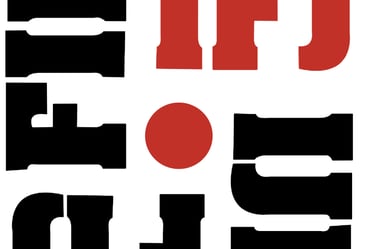The Controversy Surrounding Ju Jitsu and Its Inclusion in the Olympics


In recent years, the world of Ju Jitsu has been marred by controversy and disputes between various organizations. The Asian Union of Ju Jitsu and the Ju Jitsu International Federation have been at the center of these conflicts, particularly in relation to the sport's potential inclusion in the Olympics. The International Olympic Committee (IOC) has been faced with a difficult decision on whether to accept Ju Jitsu as an official Olympic sport. This article will delve into the controversies surrounding Ju Jitsu and its implications for the Olympics.
The Conflict Between the Combact Ju Jutsu International federation and the Ju Jitsu International Federation
The conflict between the Asian Union of Ju Jitsu and the Ju Jitsu International Federation has been ongoing for several years. One of the main points of contention revolves around the alleged theft of combat Ju Jitsu rules by the Ju Jitsu International Federation. These rules were then incorporated into the federation's discipline, causing a rift between the two organizations.
It is important to note that the Asian Union of Ju Jitsu had initially registered with only three disciplines: Fighting, Ne Waza, and Duo. However, after the Indoor Games in 2017 held in Ashgabat, the combat Ju Jitsu discipline was introduced as a trial sport. The controversy arose when the Ju Jitsu International Federation allegedly stole the combat Ju Jitsu rules and began using them as an official discipline.
This dispute has raised concerns among members of the Ju Jitsu community, as it undermines the integrity of the sport and casts doubt on the fairness of competition. Many argue that the Ju Jitsu International Federation should be held accountable for its actions and that the IOC should intervene to rectify the situation.
The Role of the International Olympic Committee
The International Olympic Committee plays a crucial role in determining which sports are included in the Olympic Games. Its primary objective is to promote fair play, inclusivity, and the spirit of sport. When considering the inclusion of a new sport, the IOC carefully evaluates various factors, including the sport's popularity, global reach, and adherence to Olympic values.
Given the controversies surrounding Ju Jitsu, the IOC faces a difficult decision. On one hand, the sport has a dedicated following and is practiced by millions of athletes worldwide. It also embodies the principles of discipline, respect, and self-improvement. However, the ongoing conflict between the Asian Union of Ju Jitsu and the Ju Jitsu International Federation raises concerns about the sport's governance and adherence to fair play.
It is crucial for the IOC to thoroughly investigate the allegations of rule theft and determine the extent to which they impact the integrity of Ju Jitsu as a sport. If the allegations are proven to be true, the IOC must take decisive action to safeguard the sport and its values.
The Way Forward
In light of the controversies surrounding Ju Jitsu and its potential inclusion in the Olympics, it is essential for all parties involved to engage in open dialogue and find a resolution. The Asian Union of Ju Jitsu and the Ju Jitsu International Federation must work together to address the allegations of rule theft and ensure that fair play is upheld.
The IOC, as the governing body for the Olympic Games, should actively investigate the allegations and take appropriate action if necessary. This may involve conducting an independent inquiry or seeking mediation between the conflicting parties. Ultimately, the IOC's decision should prioritize the integrity of the sport and the Olympic values it represents.
Furthermore, it is crucial for the Ju Jitsu community to come together and advocate for transparency, accountability, and fair competition. By addressing the underlying issues and working towards a resolution, Ju Jitsu can regain its reputation and strengthen its case for inclusion in the Olympics.
Conclusion
The controversies surrounding Ju Jitsu and its potential inclusion in the Olympics have cast a shadow over the sport. The conflict between the Asian Union of Ju Jitsu and the Ju Jitsu International Federation, particularly regarding the alleged theft of combat Ju Jitsu rules, raises concerns about the sport's governance and fairness.
The International Olympic Committee must carefully evaluate the situation and make a decision that upholds the values of the Olympic Games. It is essential for all parties involved to engage in open dialogue and work towards a resolution that ensures the integrity of Ju Jitsu as a sport.
By addressing the controversies and taking appropriate action, Ju Jitsu can move forward and strengthen its case for inclusion in the Olympics. It is crucial for the sport to regain its reputation and demonstrate its commitment to fair play and the Olympic values of excellence, friendship, and respect.




